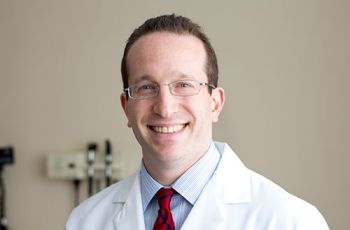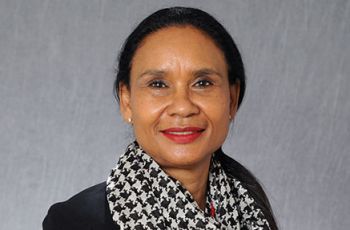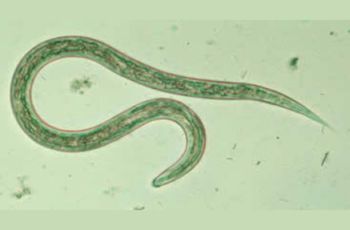Research News
A research team led by Adam Friedman, MD, associate professor of dermatology at SMHS, has found that topically applied nitric oxide-releasing nanoparticles are a viable treatment for deep fungal infections of the skin caused by dermatophytes.
Alison K. Hall, PhD, is the new associate dean for research workforce development at the GW School of Medicine and Health Sciences.
A team of researchers at GW Cancer Center found that T-cells lacking in the HDAC11 enzyme performed better in attacking cancer tumor cells. This research highlights the importance of treating HDAC11 as an immunotherapeutic target.
Norman Lee, PhD, professor of pharmacology and physiology, published research in Nature Communications finding that a form of genetic variation, called differential RNA splicing, may have a role in tumor aggressiveness and drug resistance in African American men with prostate cancer.
Researchers at the George Washington University (GW) found that certain symptoms are more and less predictive of patients’ risk for acute coronary syndrome (ACS), which includes heart attack, in patients of different gender and race.
Mathilde "Matty" Knight, PhD, adjunct professor of microbiology, immunology, and tropical medicine at GW School of Medicine and Health Sciences was on the research team that found a genome in the Biomphalaria snail that may explain why the snail is a prime transmitter for the parasite, Schistosoma…
Eduardo Sotomayor, MD, director of the GW Cancer Center, published research looking at the development of resistance to Ibrutinib, a drug used to treat patients suffering with mantle cell lymphoma.
David Diemert, MD, associate professor, and Jeffrey Bethony, PHD, professor, both in the Department of Microbiology, Immunology, and Tropical Medicine, received a $3 million UOI grant from the National Institutes of Health to test the efficacy of a candidate recombinant hookworm vaccine.
Raya Elfadel Kheirbek, MD, MPH, associate professor of medicine at the GW School of Medicine and Health Sciences published research in the Journal of the American Geriatrics Society, about the long health and life spans of centenarian veterans.
Raja Mazumder, Ph.D., at the GW School of Medicine and Health Sciences received a NIH grant to develop databases to normalize cancer genomics data.





